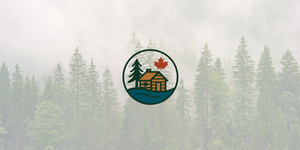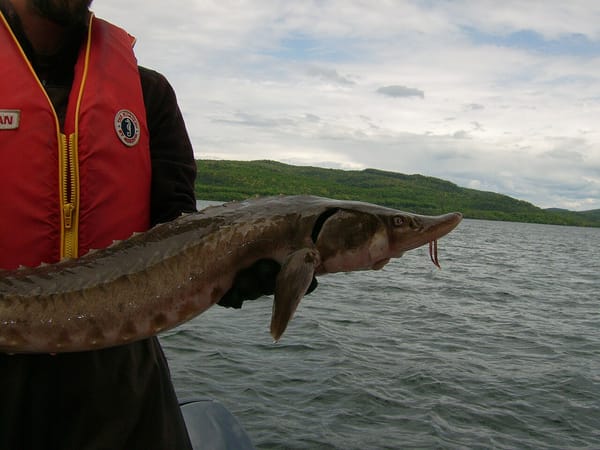A new global report released yesterday delivers a wake-up call about the world's wetlands - and it carries serious implications for Canadians who love our lakes, rivers, and wild spaces.
The Global Wetland Outlook 2025 comes from the Convention on Wetlands, an international treaty signed by 172 countries, including Canada. Also known as the Ramsar Convention, this organization has protected wetlands worldwide since 1971. Canada was one of the first countries to sign on, recognizing early that our vast wetlands - from the Prairie potholes to the Hudson Bay Lowlands - are worth protecting.
A Troubling Story
The report's findings are stark: the world has lost 22% of its wetlands since 1970. That's more than half a billion football fields worth of marshes, swamps, and lakes that have disappeared. The losses are even worse for freshwater ecosystems—exactly the kind of places where Canadians build cabins, launch canoes, and cast fishing lines.

"Wetlands are vanishing faster than any other ecosystem," states Dr. Musonda Mumba, Secretary General of the Convention on Wetlands.
"We're running out of time."
This Matters
For a country with more lakes than the rest of the world combined, these findings hit home. The report shows that wetlands contribute almost $8 trillion to the global economy each year. But for Canadians, wetlands mean much more than money:
- They filter the water we swim in and drink
- They protect cottages and communities from floods
- They provide homes for the fish we catch and the birds we watch
- They store carbon, helping fight climate change
- They offer the peaceful, wild places where we reconnect with nature
Canada in the Spotlight
The report specifically mentions Canada in a positive light. Our peat industry has teamed up with university researchers to restore over 8,000 hectares of peatlands.
"The Canadian horticultural peat industry continues to invest in research on responsible and sustainable practices"
This partnership between businesses and scientists shows that we can use natural resources while still protecting them for the future.

The report also references protection efforts in places Canadians know well, including Windsor, Ontario, where restored wetlands are now protecting homes from flooding, showing that healthy wetlands mean safer communities.
A Costly Problem Gets Worse
The report found that restoring damaged wetlands costs anywhere from 2 to 123 times more than simply protecting them in the first place.
If it costs $1,000 to protect a wetland today, it could cost up to $123,000 to fix it once it's damaged. For waterfront property owners, that's a powerful argument for keeping nearby wetlands healthy.
What's at Stake
Canada has some of the world's most important wetlands:

- The Prairie potholes that produce most of North America's ducks
- The Great Lakes coastal marshes that filter water for millions
- The northern peatlands that store massive amounts of carbon
- The countless beaver ponds, bogs, and marshes that define our landscape
The report warns that without action, we risk losing these forever. Once a wetland is paved over or drained, it's nearly impossible to bring back.
What You Can Do
The good news? Individual actions matter. The report emphasizes that protecting wetlands doesn't require government action alone. Here's how cottage owners and outdoor lovers can help:
On Your Property:
- Don't fill in or drain wet areas
- Keep a natural buffer of plants between your cottage and the water
- Use phosphate-free soaps and avoid fertilizers near water
- Fix septic systems that might be leaking
In Your Community:
- Join local conservation groups or lake associations
- Support municipal bylaws that protect wetlands
- Report illegal filling or draining of wetlands
- Participate in citizen science projects like marsh bird monitoring
As an Outdoor Enthusiast:
- Respect seasonal closures that protect nesting birds
- Stay on marked trails in sensitive areas
- Practice catch-and-release fishing in stressed watersheds
- Share what you learn with others
The Path Forward
The Convention on Wetlands is calling for protection of 428 million hectares of wetlands globally - an area about half the size of Canada. They're also pushing to restore 123 million hectares of damaged wetlands by 2030.

Canada, with 13% of the world's wetlands, has a huge role to play; Canada has already joined the Freshwater Challenge, committing to help restore wetlands and rivers.
Why It Matters Now
"Delaying investment in wetlands risks rising restoration costs and irreversible biodiversity loss"
For Canadians who grew up swimming in clean lakes, catching fish with their grandparents, or watching sunsets from the dock, this is about preserving what makes Canada special.
The report makes clear that wetlands aren't just swamps to be avoided or obstacles to development. They're the kidneys of our landscape, cleaning our water. They're nature's sponges, soaking up flood waters. They're grocery stores for wildlife and carbon vaults fighting climate change.

Most importantly, they're the backdrop to our most cherished memories and the foundation of our outdoor lifestyle. The report's message is simple: the wetlands we protect today are the ones our grandchildren will thank us for saving.
Whether you own waterfront property, love to fish, or simply enjoy Canada's outdoors, this report is a call to action.
Our wetlands have given us so much - now it's time to give back.






Join the Conversation